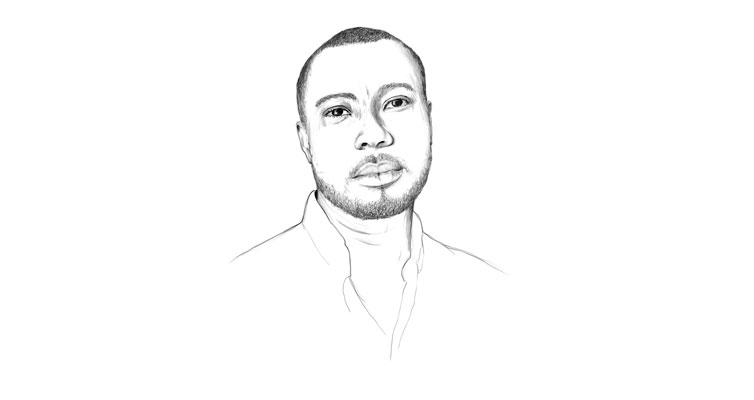Guest article: Africa
Feeding the fish

A night out in Port Harcourt often begins with a mini-feast of grilled fish – steaming hot, deliciously spicy, and wrapped in aluminium foil. Besides the city’s worthless reputation as the oil capital of Nigeria, Port Harcourt remains – at least to my mind – the seafood capital of the country; the water of the river Niger splits into its delta as it heads for the Atlantic Ocean. There is hardly a dish served here without some fish, periwinkles, crabs, shrimps, clams, or water snails. There are people who take seriously the difference in taste between the fresh-water catfish and the salt-water variety; people who shudder when served fish reared in farms, although the rivers are polluted from oil exploration, the fish in them poisoned, their population drastically dwindled.
Last August I went to an outdoor spot with three friends. We sat in the warm night, relishing the fish, taking in the occasional breeze. We dipped into the large platter of catfish, which had been marinated in a spicy sauce and slow-cooked in an open fire. I had an idea to order a second one, then thought to ask the price. The price had doubled since the last time.
‘For ordinary fish?’ my friend, Adi, complained to the uninterested waitress. We knew too well that although catfish was farmed locally, key ingredients for making the fish feed were sourced abroad. The fall in oil price and the subsequent drop in the value of the Naira meant foreign exchange transactions disadvantaged the farmers; some were shut out of business.
‘But why can’t we produce fish feed premix?’ Sodi asked, and in exasperation ordered another round of beer. ‘How difficult is it to make mixtures of vitamins, antioxidants, and feed additives?’The evening lurched into gear. I was familiar with that charge, the tense energy in the air: whenever Nigerians gather (wherever in the world that maybe), a moment comes when we give in to an impulse to understand the country, the ways it doesn’t work. We analyse our condition and offer solutions. It is really a vexation of the spirit. If fish is such an important part of our diet here, why do we not seek more control over its production? And it was left to Tombari, who had been silent, to say we needed structures and institutions that worked; in this particular case, well-equipped and well-funded laboratories for our agricultural scientists. And just like that, we had returned to an ever-present problem: structures. Our individual talents, grit, energy, creativity, even genius, can only go so far.
The question about control would nag me over the following months. How do we, as citizens who value life, have some control over the quality of our existence? The bright future I envisage for Nigeria is one in which we step away from being just ‘potential’ or merely a market. We must produce too. It is the role of government to initiate this collective striving to improve our wellbeing and assert positive influence in the global space. And surely, if we love to eat grilled catfish, it is up to us to ensure this culinary joy endures.
Jowhor Ile is a Nigerian author whose first novel ‘And After Many Days’ was published in 2016 to great acclaim. His writings about daily life in Africa are both poetic and political.
published in akzente 2/17
A continent in transition
Focus: Africa
‘Africa can capture the century’
Africa - Interview
Great opportunities and diversity
Infographic: Africa



